Beaver, Cub and Scout clubs are gaining inner-city popularity

Volume 4 Issue 003: We went scouting about in Milky Button Park, south Manchester to find out why.
Life
Words: Fergal Kinney
Photography: Maxwell Tomlinson
Article taken from The Face Volume 4 Issue 003. Order your copy here.
“Mopeds. No, axe-throwing! That’s definitely my favourite thing. All right, yeah, they’re mini axes, but it’s still axe-throwing.”
A shivering winter Saturday, and in the implausibly named Milky Button Park in south Manchester, a group of children aged between eight and 14 are debating the finer points of their favourite pastimes.
“Nah, nah, nah actually…” He’s changed his mind again. “…it’s canoeing.”
Until a few years ago, none of these kids would have been exposed to mopeds, or axe-throwing, or canoeing. But then a few years ago Wythenshawe didn’t have a Scout group.
Scouting, to say the least, was perceived as an anachronism. It was a 100-year-old organisation made up of boys (only boys) in shorts (always shorts) singing 100-year-old songs while freezing their knees off on soggy campsites. It was something near which your average inner-city kid wouldn’t be seen dead. Especially when you factored in fusty traditions such as saying “dib dib dib, dob dob dob”(weirdly meaning doing your best), mastering knots, a leader called Akela and the importance of the woggle (that wooden toggle thingy that fastens a Scout’s neckerchief).

But since 2014 membership in Britain has increased by 20,000, once again approaching the peak popularity the organisation reached in the late 1980s. And it’s largely down to groups such as the Wythenshawe Scout pack.
“I didn’t know anyone here at first,” one of the older Scouts tells me, breathless from running around the park. “A lot of the time I’m just indoors on my Xbox. But when I’m in Scouts, I’m sort of properly out. I’ve been to other clubs and didn’t really like it. Here, though…” He looks around at his mates clambering over one another to rush up the metal stairs of the slide. “…I really like it.”
Scouting was established at the beginning of the 20th century by British Army Lieutenant General Robert Baden-Powell. In 1908 he published Scouting for Boys, and its original subtitle tells you everything about its noble aims: “A handbook for instruction in good citizenship”. This new organisation focused on army-style survival skills and a more utopian impulse to get kids out of their towns and into nature.
For most of the rest of the 20th century Boy Scout membership was a fixture of British life, a rite of passage for young lads up and down the country. Young lasses, meanwhile, had the similar but separate Girl Guides, founded by Baden-Powell and his sister Agnes in 1910. Numbers increased until the late 1980s, when there were just under 700,000 Scouts in the UK. However, there was a heavy decline from the 1990s onwards, with the combination of map-reading, traditional values and enthusiastic dibbing and dobbing feeling increasingly alien to a generation raised on TV, Tamagotchis and the internet.
When I was growing up in Lancashire in the 1990s, my mum sent me to Beavers until I was eight, Cubs until I was 10 and then, on turning 10, Scouts. I lost interest in Scouting not long after that. But even though I still can’t orienteer myself much further than my front door, I remain friends with some of the kids I spent Tuesday nights with in church halls throughout my childhood. The knots didn’t last, but the bonds did.
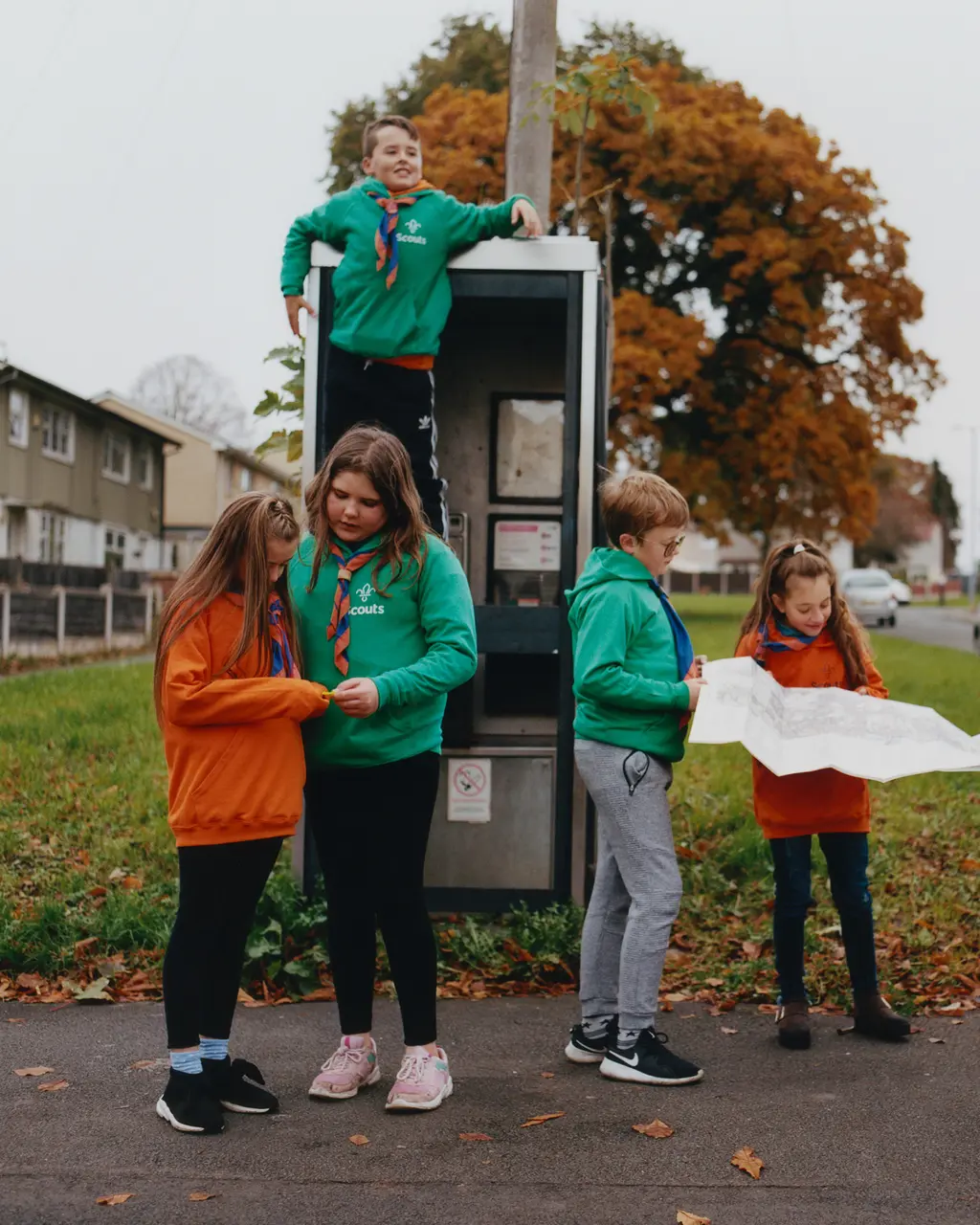
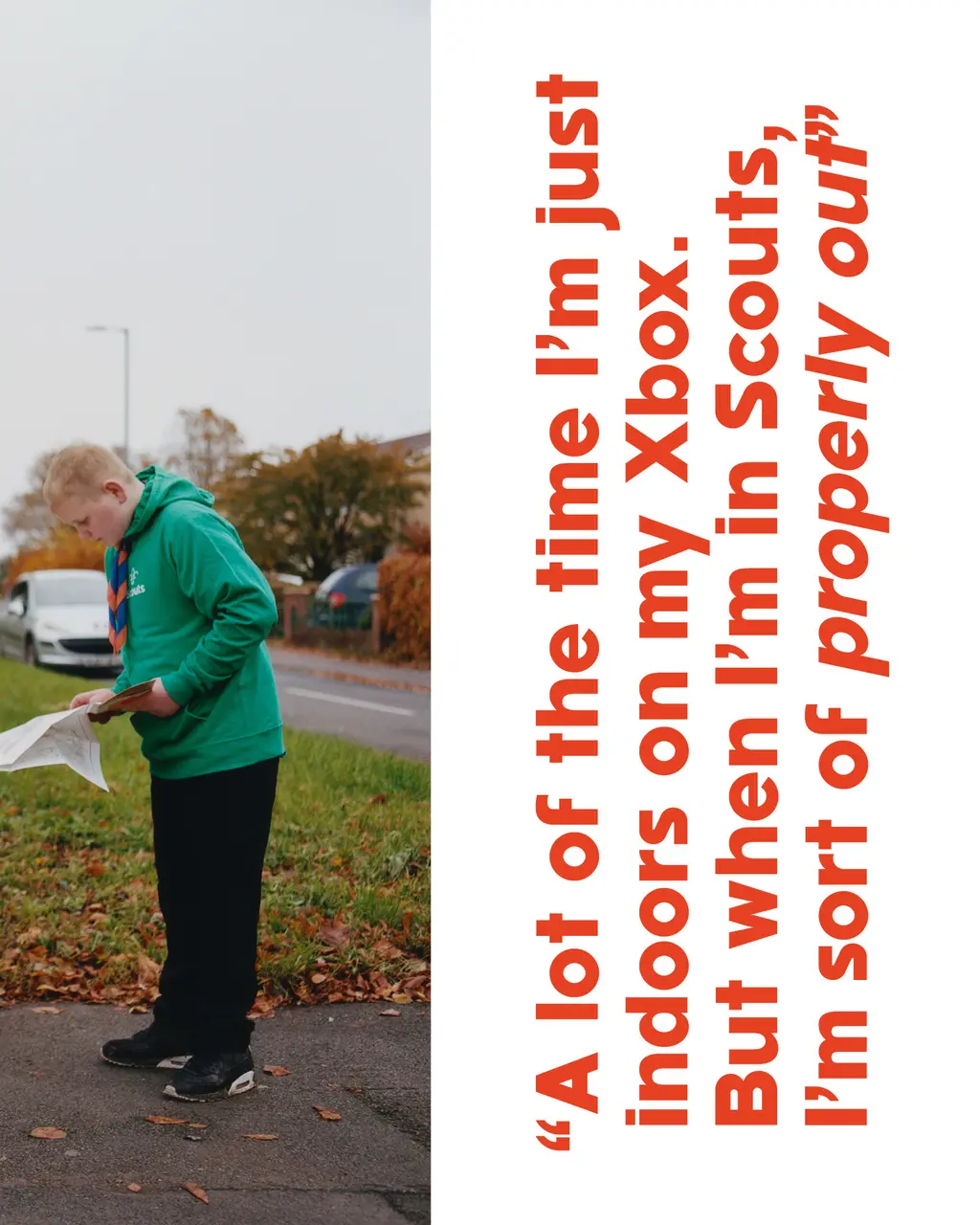
Part of the reason why I left Scouts speaks to the movement’s image problem: too middle-class, too twee, too white. Even opening up every age group within the Scouting movement to girls, which happened in 2007, did little to slow the decline in membership. By 2014 the organisation’s leadership realised that they had to renew their mission to have any relevance in modern Britain. A new role was created: UK Youth Commissioner, who would be a voice for the members at the leadership level, and a mission statement entitled Scouting for All was introduced. There would be four areas of focus: growth, inclusivity, youth-shaped Scouting and community impact. The following year they launched A Million Hands, an initiative to “mobilise” half-a-million Scouts to tackle social issues and support charities.
In Austerity Britain, that activism and inclusion has never been more vital, and Scouting is perfectly placed to step up. Soaring poverty rates – more than four million children are currently living below the poverty line in Britain – provided the organisation with an opportunity to go back to its roots and rediscover its purpose in some of the country’s most under-privileged communities.
As they did when Baden-Powell launched the organisation, kids and communities answered the call. In the past six years, new Scout groups have proliferated, notably in inner-city areas in Birmingham, Southampton, London and Newcastle, as well as in smaller communities such as Jaywick on the Essex coast, classed as England’s most deprived borough based on factors including unemployment, crime and poverty.

Wythenshawe, where I’m standing today, is another area with more than its fair share of challenges. Sitting on the southern outskirts of Manchester, nestled next to affluent Cheshire, it comprises the second-largest council estate in Britain. More than a third of its children are living below the poverty line.
Certainly the area has suffered from an image problem. Much of the Channel 4 comedy Shameless was filmed here, and in 2007 the estate became a symbol of “Broken Britain” after a hoodied teenager was pictured making a gun symbol behind the then Conservative leader David Cameron (there’s not much love for Cameron in Wythenshawe today, but the general consensus is that the teenager was known locally as a bit of a wally).
However, things weren’t always this way. Like the Scout movement itself, the Wythenshawe estate grew from a radical idea: a town within an industrial metropolis, born out of the Victorian “garden city” movement, which sought to give working people the benefits of the countryside. In the 1920s the city of Manchester was pioneering in this regard, buying up vast swathes of land on which to build the estate.
Construction was completed after the Second World War, part of that great progressive moment that also saw the creation of the NHS. The rehousing promised more space, more rent security and better hygiene. It stands in stark contrast to the cramped, crap flats that hover over a city increasingly in hock to property developers today. Many of the buildings in Wythenshawe still feel exhilarating, and the lost ambitions of that post-war spirit are suggested all around the area, not least in the futuristic William Temple Church, one of the most celebrated modernist places of worship of the 20th century.
-
“Some of the kids haven’t been out of Wythenshawe. Sometimes it’s the first time they’ve seen a cow.” “Some of the kids haven’t been out of Wythenshawe. Sometimes it’s the first time they’ve seen a cow.” “Some of the kids haven’t been out of Wythenshawe. Sometimes it’s the first time they’ve seen a cow.” “Some of the kids haven’t been out of Wythenshawe. Sometimes it’s the first time they’ve seen a cow.” “Some of the kids haven’t been out of Wythenshawe. Sometimes it’s the first time they’ve seen a cow.” “Some of the kids haven’t been out of Wythenshawe. Sometimes it’s the first time they’ve seen a cow.” “Some of the kids haven’t been out of Wythenshawe. Sometimes it’s the first time they’ve seen a cow.” “Some of the kids haven’t been out of Wythenshawe. Sometimes it’s the first time they’ve seen a cow.” “Some of the kids haven’t been out of Wythenshawe. Sometimes it’s the first time they’ve seen a cow.” “Some of the kids haven’t been out of Wythenshawe. Sometimes it’s the first time they’ve seen a cow.” “Some of the kids haven’t been out of Wythenshawe. Sometimes it’s the first time they’ve seen a cow.” “Some of the kids haven’t been out of Wythenshawe. Sometimes it’s the first time they’ve seen a cow.” “Some of the kids haven’t been out of Wythenshawe. Sometimes it’s the first time they’ve seen a cow.” “Some of the kids haven’t been out of Wythenshawe. Sometimes it’s the first time they’ve seen a cow.” “Some of the kids haven’t been out of Wythenshawe. Sometimes it’s the first time they’ve seen a cow.” “Some of the kids haven’t been out of Wythenshawe. Sometimes it’s the first time they’ve seen a cow.” “Some of the kids haven’t been out of Wythenshawe. Sometimes it’s the first time they’ve seen a cow.” “Some of the kids haven’t been out of Wythenshawe. Sometimes it’s the first time they’ve seen a cow.” “Some of the kids haven’t been out of Wythenshawe. Sometimes it’s the first time they’ve seen a cow.” “Some of the kids haven’t been out of Wythenshawe. Sometimes it’s the first time they’ve seen a cow.”
Lucy Cope is the general leader for the area’s Scout branch. Until a few years ago she had no experience of organising Scouts but had become increasingly frustrated that the group she was taking her children to was a 15-minute drive away, placing it well out of reach for many families in the area.
“I have this problem,” she tells me, one eyed fixed over my shoulder at the children running breathlessly in the park. “If someone puts an idea in my head, I just have to do it.”
Cope contacted her local district commissioner with the idea of setting up what she describes as “a nice, small Beaver group”. After funding applications and weeks of admin, a local Baptist church was sourced as a venue, and Cope put the word out. Nobody could have anticipated the demand.
“On the first night 17 kids turned up,” she says. “The next week, older kids started arriving. We thought we’d be all right bulking them together for a bit. But after a few weeks we realised we were going to have to open Cubs, too. You open Cubs, and then what happens? Scouts start turning up!” Cope now heads up two Beaver groups, two Cub groups and a Scout group. They’re all packed, all the time.

So why are parents increasingly sending their children to Scouting groups? Over the past decade the number of youth centres in England has fallen by more than 50 per cent, part of a social picture in which there are increasingly few safe spaces for young people to occupy outside the classroom. After-school clubs, with an average national cost of £12 a day, price the majority of families out. For parents who want their children to enjoy structured fun the options are few. No wonder it’s in more deprived areas that the demand is highest.
“I don’t like my kids going out on their own,” one parent tells me. “You hear about gun crime, knife crime. But with Scouts, even though it’s only once a week, they’re doing things they wouldn’t ordinarily do.”
These issues are at the front of Cope’s mind. One of the first problems she encountered was that many families could not afford the uniforms (blue sweatshirts, shorts and, of course, the trusty woggle). But through a scheme run by local police – in which cash collected from criminals goes to community groups – £1,600 was raised to subsidise uniforms.
“We’ve had situations where families have had their benefits stopped,” Cope explains, adding that she has on occasion waived payments where possible. “Obviously we can’t do that every time, but I don’t want anyone to miss out because of something like that.”
That parents are keen to get their kids into Scouting is one thing. But why are the kids coming back?
“It’s exciting,” explains 10-year-old Katie (not her real name). “I like being out here more than I like being at home.”
Of course, the camping trips are a major draw. Unprompted, nearly all the kids bring up that they’ve been to one, or how much they’re looking forward to going finally.
“There were 13 of us,” explains Jack, beaming with excitement. “Just amazing.” Next to him, his mate bristles, arms folded: he has to wait a month until his first camp, a delay that’s so unfair.
“Some of the kids haven’t been out of Wythenshawe,” says Cope. When they go on camp, “sometimes it’s the first time they’ve seen a cow. These are things you or I might take for granted, but some of these kids aren’t able to get in the car and go somewhere.”
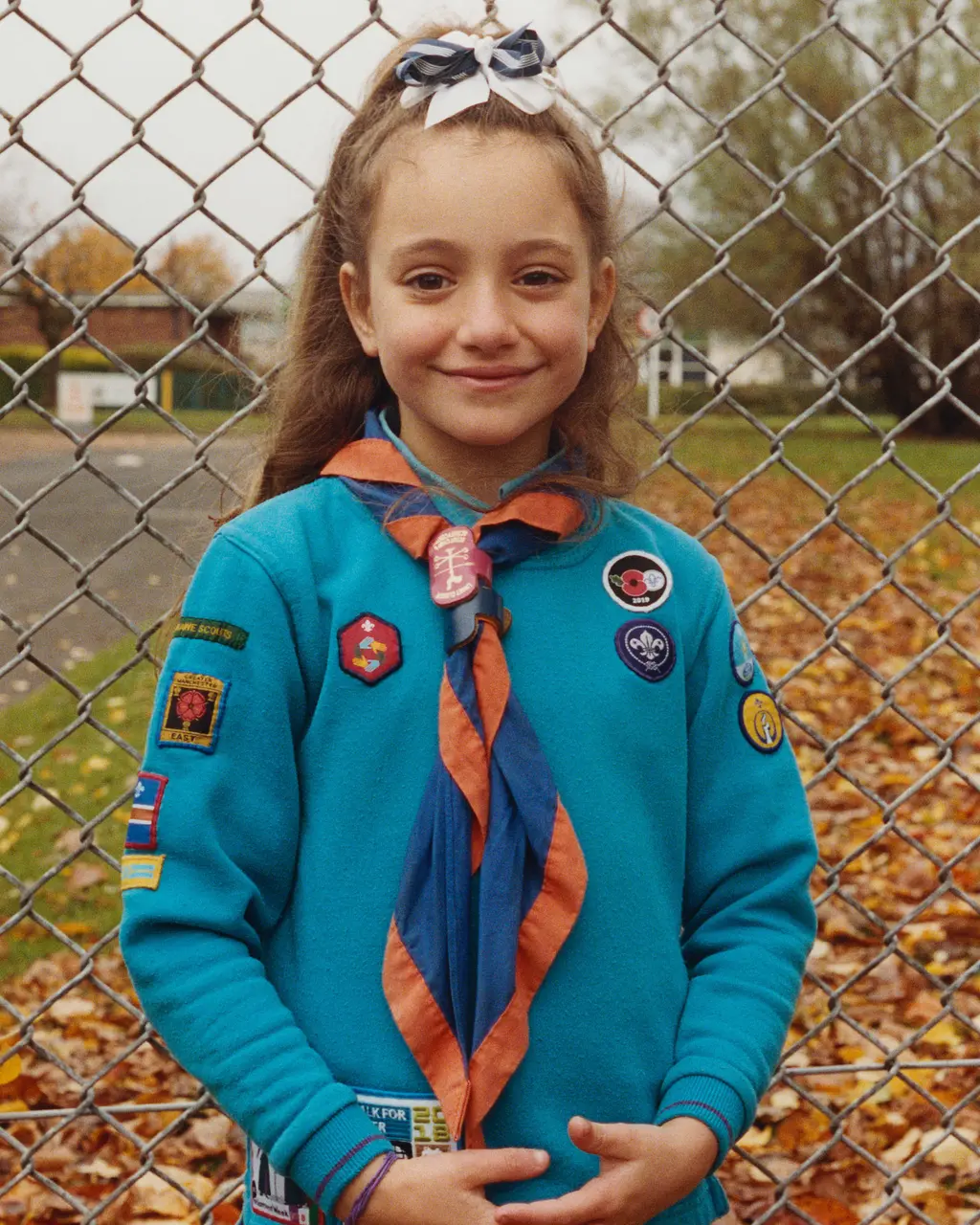
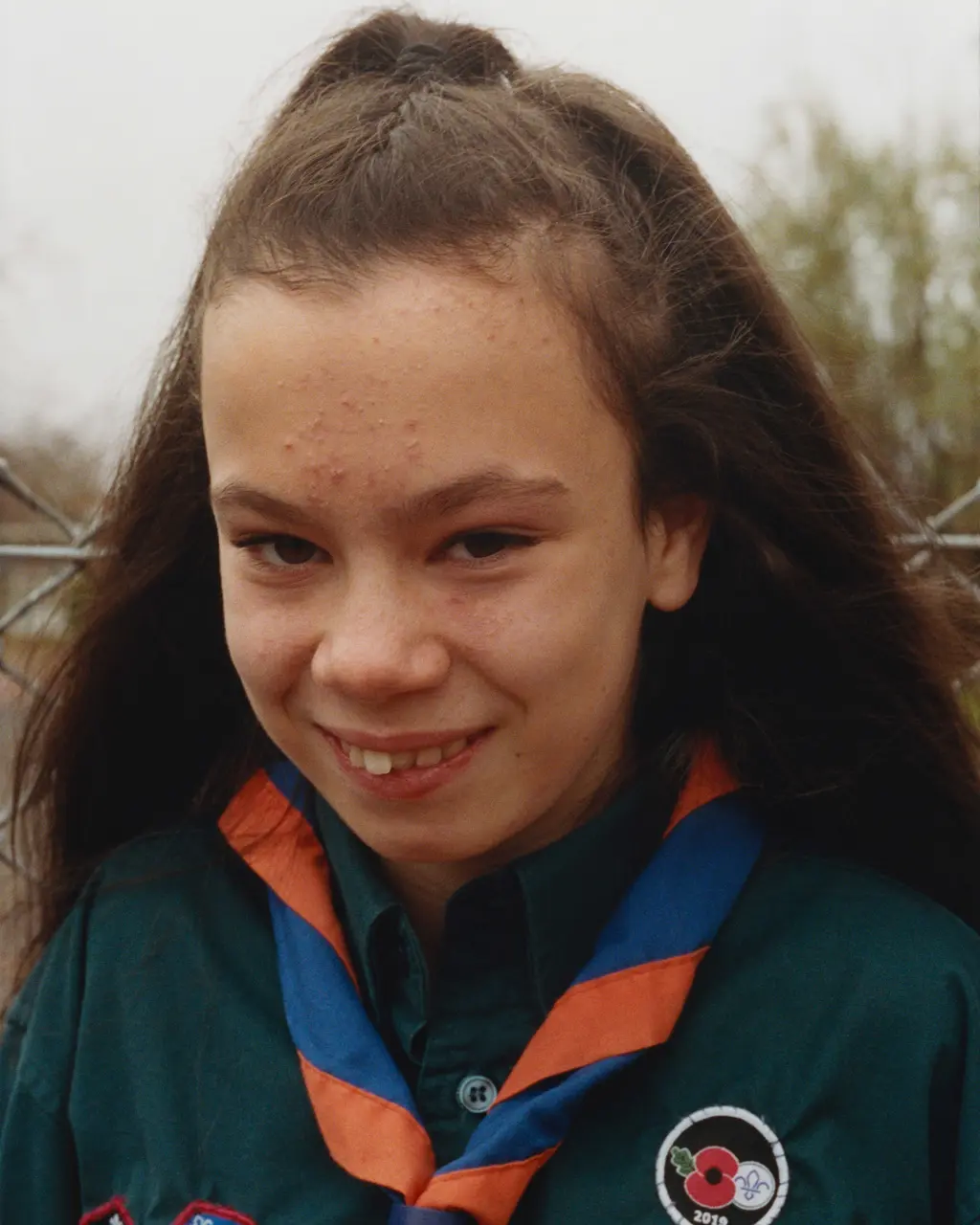
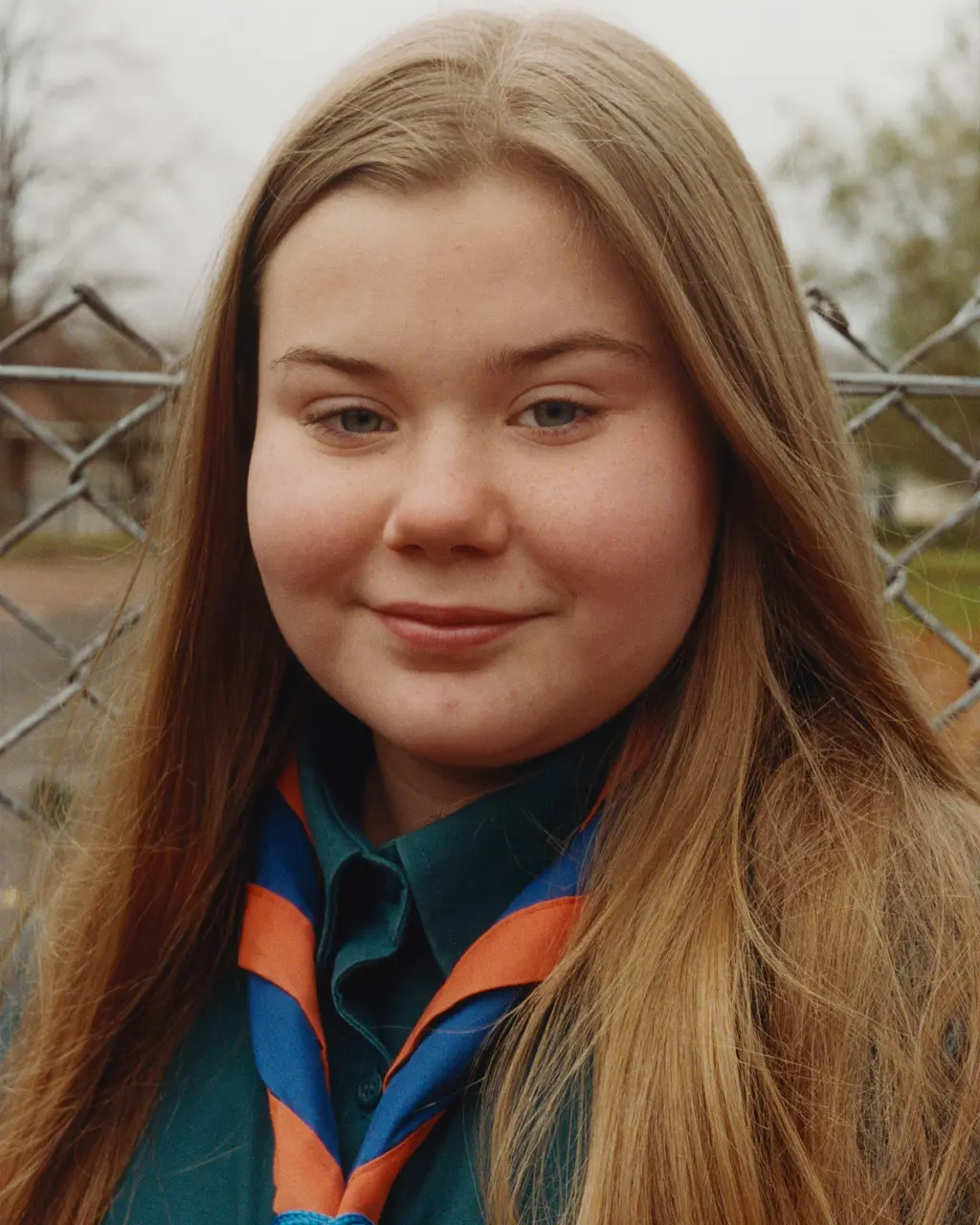
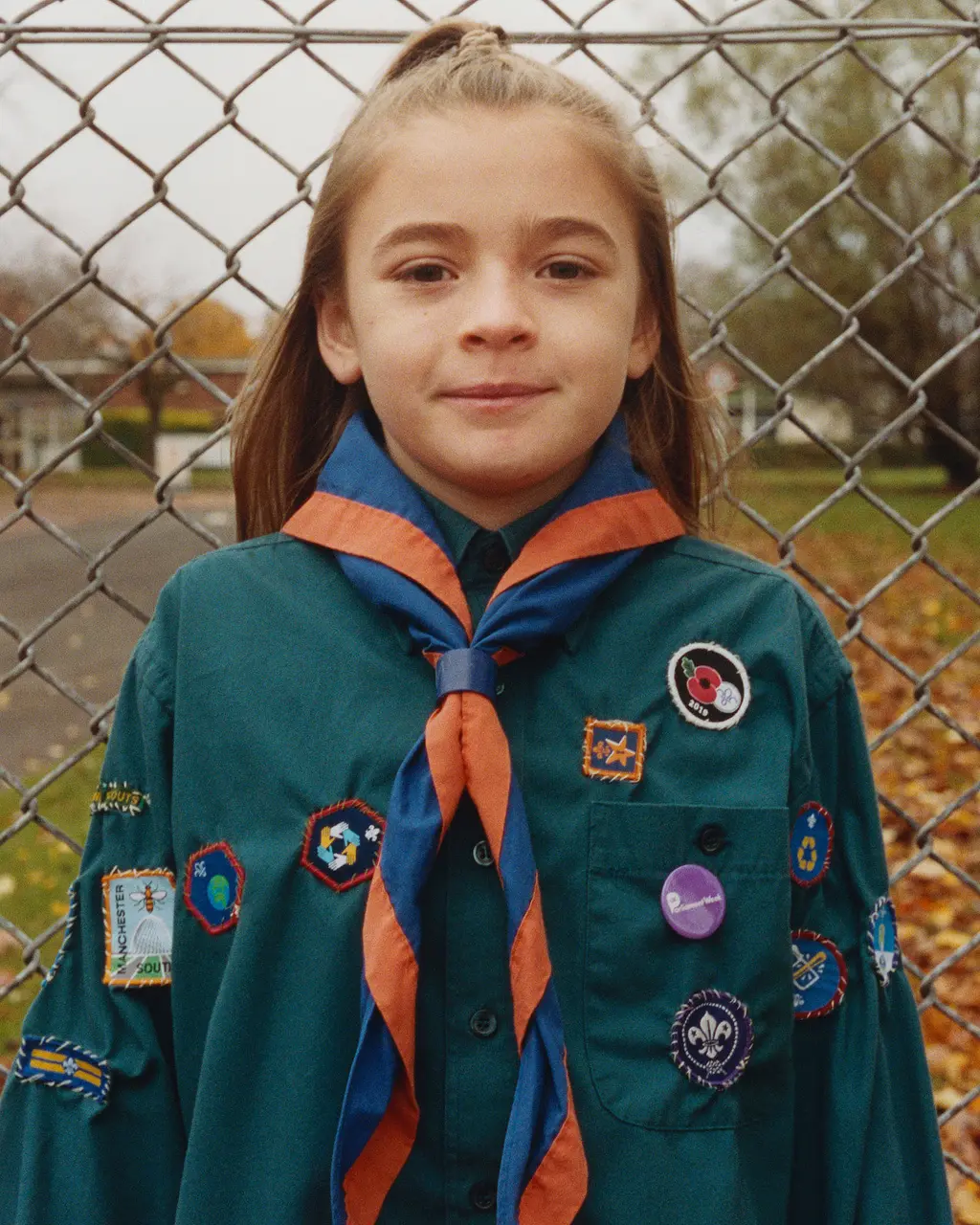
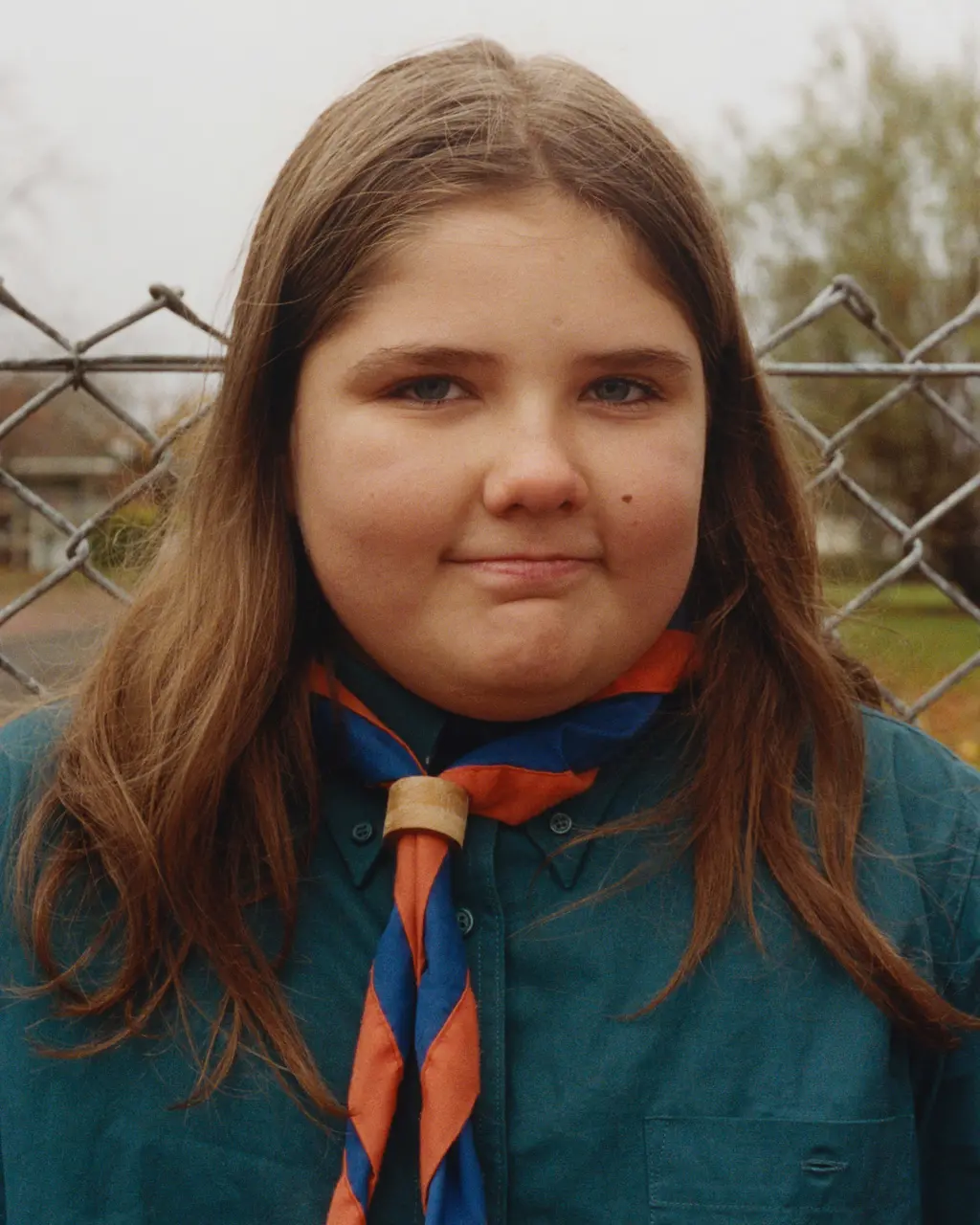
Though the Scout group here serves one function as a kind of youth club (with a range of badge-earning activities, including very 21st-century skills such as computer coding and environmental conservation), Cope is mindful that the traditional values of Scouting remain at the forefront. Central to that is map-reading and orienteering. In a rural Scout group that’s easy. But what do you do in an inner-city area?
I watch as Cope divvies up the kids into groups of four or five, mixing boys with girls, shy kids with the more assertive, gently pushing everyone out of their comfort zones as they split off in separate packs around the estate.
The girls in Wythenshawe today – taking the lead, and certainly brooking no messing from the lads – suggest their inclusion has been pivotal to the boom in numbers. Seeing and feeling the explosion of good-natured energy on display today, it’s hard to disagree.
As I watch the kids trying to cross a stream that cuts through one of the parks, I suspect the original town planners would be thrilled to see children, decades on, interacting with their built environment, making the most of the greenery that’s so central to this proudly urban settlement.
“Wythenshawe, it’s nice,” one of the Cubs – moving so fast I can’t catch his name – tells me, surveying his surroundings proudly. “And a lot of people here are really nice.”
These, then, are the New Scouts: up-for-it, open, welcoming. Just make sure you knock before entering the clubhouse on axe-throwing night.








